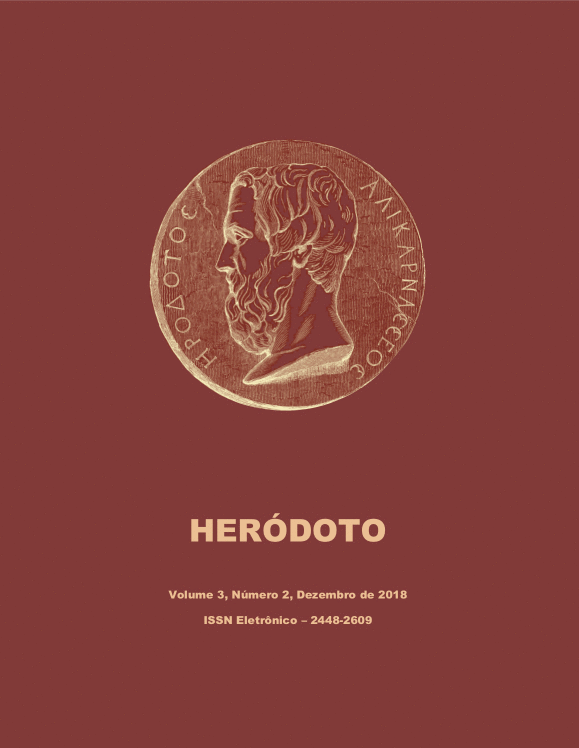Emerging distribution networks of Roman pottery in the Ancient Mediterranean: the sigillata clay lamps of Proconsular Africa
DOI:
https://doi.org/10.31669/herodoto.v3n2.13Palavras-chave:
Network Science, Archaeological Networks, Classics, Africa Proconsularis.Resumo
This paper surveys the use of Network Science, especially the role of Archaeological
Networks to the study of Archeology and Ancient History. Network
thinking and network science are valuable methodologies and analytical techniques
to apply to the study clay lamps in the framework of Roman economy.
The recent application of network analysis in Antiquity and Archaeology has
demonstrated that there are a variety of approaches to recognizing network
patterns or thinking about phenomena as products of networked processes.
Provincial connectivity is one of the most debated aspects of Roman economics,
and ceramic consumption patterns in the interior and coastal regions of
Africa Proconsularis have proven to be very different. The dominant tendency
to turn to the communities formed and structured around native identities,
especially those based in the major urban centers and larger areas, seems to
establish itself as an argument for the economy and exchanges of the Roman
Empire. This types of networks helped to spread ideas and religious symbols
through clay lamps. Africa Proconsular demonstrates evidence that the ceramic
workshops emerged as networks in order to established themselves seeking
to meet the Mediterranean demand and religious consumption.
Métricas
Downloads
Downloads
Publicado
Edição
Seção
Licença
Autores que publicam nesta revista concordam com os seguintes termos:
- Autores mantém os direitos autorais e concedem à revista o direito de primeira publicação, com o trabalho simultaneamente licenciado sob aLicença Creative Commons Attribution que permite o compartilhamento do trabalho com reconhecimento da autoria e publicação inicial nesta revista.
- Autores têm autorização para assumir contratos adicionais separadamente, para distribuição não-exclusiva da versão do trabalho publicada nesta revista (ex.: publicar em repositório institucional ou como capítulo de livro), com reconhecimento de autoria e publicação inicial nesta revista.
- Autores têm permissão e são estimulados a publicar e distribuir seu trabalho online (ex.: em repositórios institucionais ou na sua página pessoal) a qualquer ponto antes ou durante o processo editorial, já que isso pode gerar alterações produtivas, bem como aumentar o impacto e a citação do trabalho publicado (Veja O Efeito do Acesso Livre).












